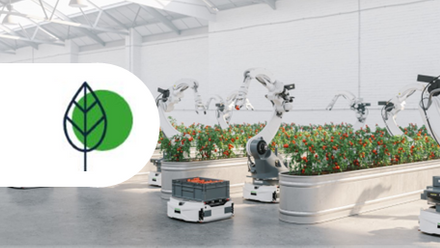Getting Regulation Right for a Net Zero Future - techUK's response to DEFRA's proposed amendments to the Environmental Permitting Regulations
The UK’s environmental permitting regime has played a key role in improving environmental performance across industry. But as DEFRA's consultation on proposed amendments to the Environmental Permitting Regulations recognises, the system has become complex, fragmented, and increasingly unsuited to the pace of technological change and decarbonisation now required of the UK economy.
In our response, techUK and our members – including UK data centre operators – welcome the Government’s ambition to simplify, modernise, and align permitting with the UK’s net zero goals. However, reforms must be implemented carefully to avoid adding unnecessary complexity or unintentionally capturing critical backup infrastructure that poses minimal environmental risk.
Read our response here
Enabling Innovation
Innovation is essential to achieving the UK’s net zero ambitions. Yet the current framework can delay or deter trials of new technologies. techUK supports DEFRA’s proposal for regulatory sandboxes to enable time-limited, risk-based trials of emerging approaches such as hydrogen-ready or hybrid backup systems.
We also call for a reformed R&D exemption, allowing limited commercial use of products generated during genuine research without disproportionate regulation. For businesses to invest confidently in hydrogen and other transitional fuels, DEFRA must provide clear policy timelines, transitional flexibilities, and consistency across departments.
Agile Standards
The UK’s BAT regime has been a global model for evidence-based environmental standards, but it now needs to be more dynamic. techUK recommends empowering regulators to review and adopt new BAT conclusions within fixed timeframes, ideally every five years, to ensure standards keep pace with innovation.
Integration with the UK Emissions Trading Scheme (ETS) is vital to avoid “double permitting”, where operators face overlapping monitoring and reporting requirements. A single, aligned reporting template would reduce duplication and support more efficient compliance.
Proportionate and Practical Regulation
A risk-based approach must underpin the reformed system. Standby generators, which operate only during emergencies, should not be treated the same as continuous emitters. techUK recommends a registration-based approach relying on manufacturer-certified data and limiting testing to commissioning or where local air quality is a concern.
We also urge DEFRA to clarify thresholds and aggregation rules for data centres, providing plain-language guidance and outline permitting options to accommodate incremental growth.
Finally, new rules for Battery Energy Storage Systems (BESS) must distinguish between grid-scale installations and non-export UPS systems in data centres. Applying full permitting to the latter would add cost without environmental benefit.
Effective, Efficient Regulation
The effectiveness of the system depends on regulator capacity and consistency. techUK supports DEFRA’s recognition that the Environment Agency and local authorities need adequate resourcing, training and digital tools to deliver timely decisions.
We endorse proposals for outline and flexible permits, providing early certainty for developers while maintaining environmental safeguards. Digitising permitting and integrating it with planning and carbon reporting would further reduce duplication and delay.
Clear service-level expectations, proportionate fee structures and consistency across regions are essential to ensure a fair, predictable process for operators of complex sites such as data centres.
Transparency and Trust
techUK supports greater transparency within environmental permitting, provided disclosure balances public accountability with commercial confidentiality and security.
Reform of the UK Pollutant Release and Transfer Register (PRTR) presents an opportunity to modernise data reporting. techUK recommends a harmonised digital system that integrates information from multiple regimes, reduces duplication, and publishes aggregated data focused on material environmental outcomes.This approach would strengthen public trust while supporting innovation and competitiveness across the UK’s tech and industrial sectors.

Luisa C. Cardani
Luisa C. Cardani is the Head of the Data Centres Programme at techUK, aiming to provide a collective voice for UK operators and working with government to improve business environment for the data centres sector.

Lucas Banach
Lucas Banach is Programme Assistant at techUK, he works on a range of programmes including Data Centres; Climate, Environment & Sustainability; Market Access and Smart Infrastructure and Systems.

Jade van Zuydam
Jade joined techUK in September 2025, leading our data centres work on energy and water. As Junior Programme Manager, she works with industry and government to shape policy and advance sustainability, resilience and the UK’s net zero goals.
techUK - Committed to Climate Action
Visit our Climate Action Hub to learn more or to register for regular updates.
By 2030, digital technology can cut global emissions by 15%. Cloud computing, 5G, AI and IoT have the potential to support dramatic reductions in carbon emissions in sectors such as transport, agriculture, and manufacturing. techUK is working to foster the right policy framework and leadership so we can all play our part. For more information on how techUK can support you, please visit our Climate Action Hub and click ‘contact us’.
Latest Report
Upcoming climate events
Latest news and insights
Get our climate insights straight to your inbox
Climate, Environment and Sustainability updates
Sign-up to get the latest updates and opportunities from our Climate, Environment and Sustainability programme.
Learn more about our Climate campaign

Become a member








